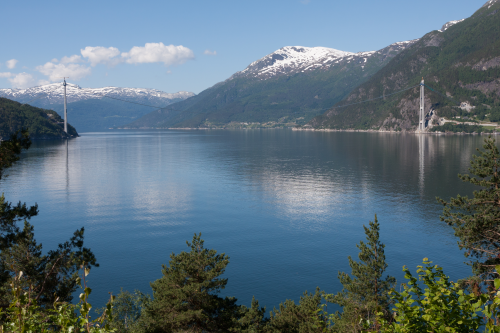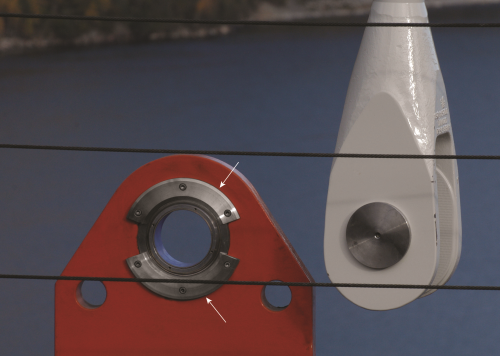

Federal-Mogul’s bearings are made of a thin-walled, self-lubricating sliding material called deva.bm that provides a larger load-carrying surface, providing sufficient durability for the life of the bridge without repair or replacement. If the sliding layer became damaged by exposure to loads in excess of the design values, the structure of the joint is protected and the plain bearing can function at a reduced level, according to Federal Mogul.
Conventional roller bearings are not suitable for the prolonged, minute movements of the bridge while under constant heavy load and could potentially suffer from surface failures called 'brinelling.'
The complete bridge includes 120 spherical plain bearings with a shaft diameter of 160 mm and eight with a shaft diameter of 300 mm, used for the main retaining cables adjacent to the two bridge towers. The joint balls are made from stainless steel, which is pressed into a plain bearing made from deva.bm. A low-friction sliding bearing consists of a backing comprising steel, stainless steel or bronze, with a deva.metal surface layer. This surface layer is a bronze material manufactured using powder metallurgy -- it is highly compressed and coated with a layer of solid lubricant material, such as graphite or PTFE.
The bearing housing forms a two-part spherical ring, also lined with deva.bm, and the design is completed using thrust washers that are also made from deva.metal, which absorb axial forces. The bearings are suitable for dry running at slow sliding speeds with very high resistance and are well-suited for extreme temperatures and corrosion.
In all, Federal Mogul will supply 128 spherical plain bearings made using its DEVA self-lubricating material technology. They will be used to accommodate the small movements that occur between the bridge and its supporting cables.
"Wind pressure, load and vibrations from traffic flow and temperature changes are all contributors to road movement on suspension bridges," said August Stadlmayr, managing director of Federal-Mogul DEVA GmbH. "The Hardanger Fjord bridge was particularly challenging because of its length and the loads generated."
A number of bridges around the world also use the Federal-Mogul technology, including: the flap bridge in the port of Valencia, Spain; the bridge over the Peene near Anklam, Germany; and the Rethe Bridge in Hamburg, Germany.



